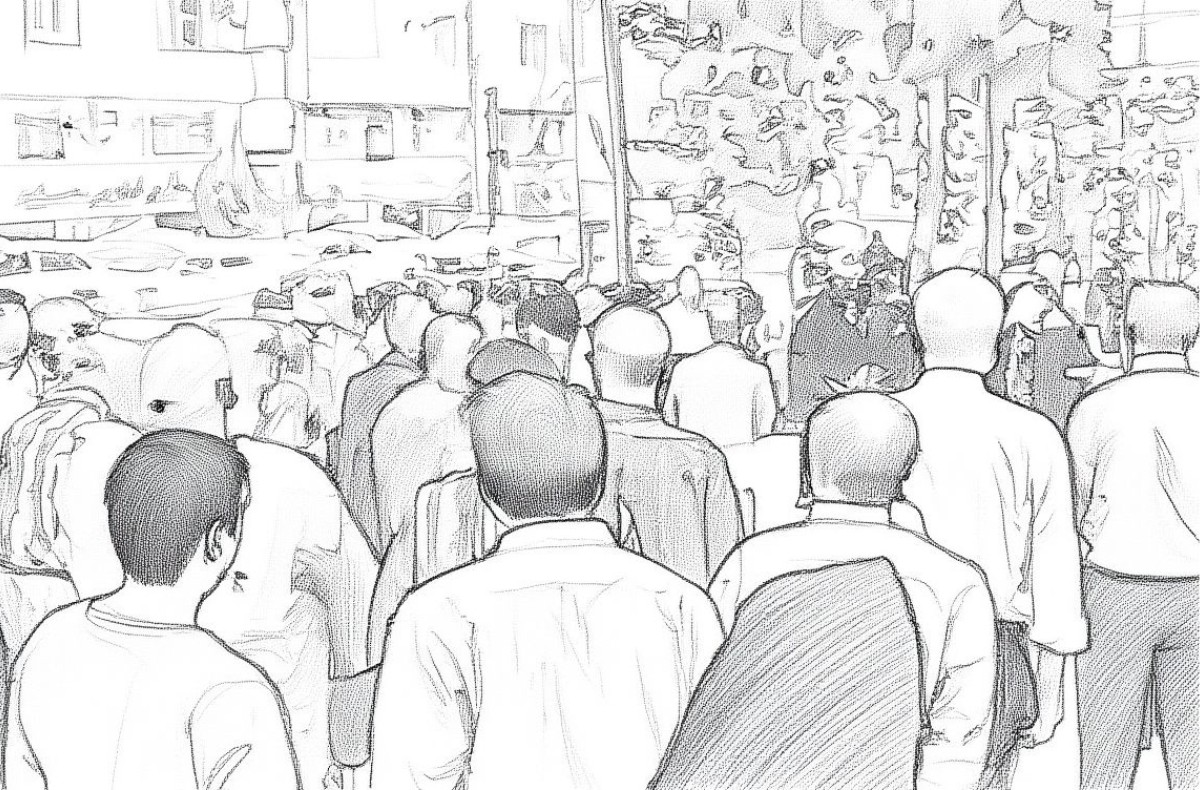Between August 16 and 19, 2025, workers and pensioners across Iran raised their voices through widespread protests, strikes, and gatherings against poverty, job insecurity, unpaid wages, and the systematic neglect of their rights. This report reviews the key labor events of these days, once again exposing the depth of exploitation and the urgent need for workers’ unity.
Unpaid Wages and Mass Layoffs
Workers at Boroujerd Textile, nearly one thousand in total, have been working for months without receiving their wages. Since its privatization in 2010, this factory has repeatedly faced mass layoffs, closures, and production halts, pushing workers’ lives to the brink of collapse. In Abhar, 20 workers at Siadan Steel were dismissed after their temporary contracts ended, even though some had over a decade of experience. Similarly, around 100 workers at Dipoint Company and more than 50 fuel station workers in Ahvaz lost their jobs after privatization—clear signs of anti-worker policies targeting workers’ livelihoods. Forest rangers in Noor reported three months of unpaid wages and lack of contracts, while water-pumping station workers in Gachsaran said they have received neither wages nor insurance since the start of the year.
Fatal Accidents and Unsafe Workplaces
Workplace accidents continue to claim lives. In Tehran, an Afghan worker died at Kian Tower while his brother was injured. In Bam, a 30-year-old miner was killed in a landslide at the Ebargh zinc mine. In Zanjan, a cement factory contractor was killed by a falling iron piece. In Nahavand, a construction worker died from electrocution while operating a mixer. In Baluchistan, at least seven fuel carriers were killed or injured in separate incidents. In Kermanshah alone, official figures report 14 worker deaths and 380 injuries in just the first four months of the year. These tragedies are the direct result of unsafe workplaces, outdated equipment, and the disregard of employers and the state for workers’ lives.
Strikes and Labor Protests
The strike by Razi Petrochemical’s subcontracted workers in Mahshahr reached its eleventh day on August 19. They demand an end to discrimination, increased benefits, and wage equalization. Although two detained workers were released, the strikers declared they will continue until their demands are met. In Assaluyeh, Sabalan Petrochemical workers entered the tenth day of their hunger strike against discrimination and unequal conditions. Miners at Tazareh in Damghan gathered to protest wage and insurance delays, blaming contractors. In Gachsaran, oil and gas contract workers called for the removal of contracting companies and direct employment. Ride-hailing drivers at Snapp and Tap30 also protested high commissions and declining earnings, describing their situation as “digital slavery.”
Pensioners’ Protests
Pensioners rallied in cities including Ahvaz, Rasht, Shush, Sanandaj, Bijar, Kermanshah, Isfahan, Tehran, Tabriz, Marivan, and Shahr-e Kord. They demanded wage equalization, insurance reforms, and better living conditions. Telecom pensioners specifically protested against corruption in shareholder institutions such as the Executive Headquarters of Imam’s Directive and the IRGC’s Cooperative Foundation. In Kermanshah, state and social security pensioners staged a joint rally, reflecting growing solidarity. In Tehran, IRIB pensioners highlighted their lives under the poverty line, demanding a 50% wage increase and improved healthcare services.
Violence Against Workers
At Damash Mineral Water Factory, a worker was beaten by the employer and dismissed after demanding unpaid wages and insurance. This case highlights the deep lack of rights and intimidation faced by workers in their workplaces.
This wave of protests and strikes once again demonstrates that workers and pensioners can resist exploitation, unsafe conditions, and systematic denial of rights only through unity and independent organization. Privatization, temporary contracts, unsafe workplaces, and repression of demands are all part of the ruling authorities’ anti-worker policies. Experience shows that state-controlled unions not only fail to represent workers but act as partners of employers in denying their rights. The only path forward is through creating independent workers’ organizations, building nationwide solidarity, and linking economic struggles with the demand for fundamental political change. Workers and pensioners, through their continued collective protests, have made it clear: they will not remain silent in the face of oppression and plunder, and they will not stop until their rights are won.
Prepared by Pezhvak-e Kar Iran (Echo of Iran’s Labor)

